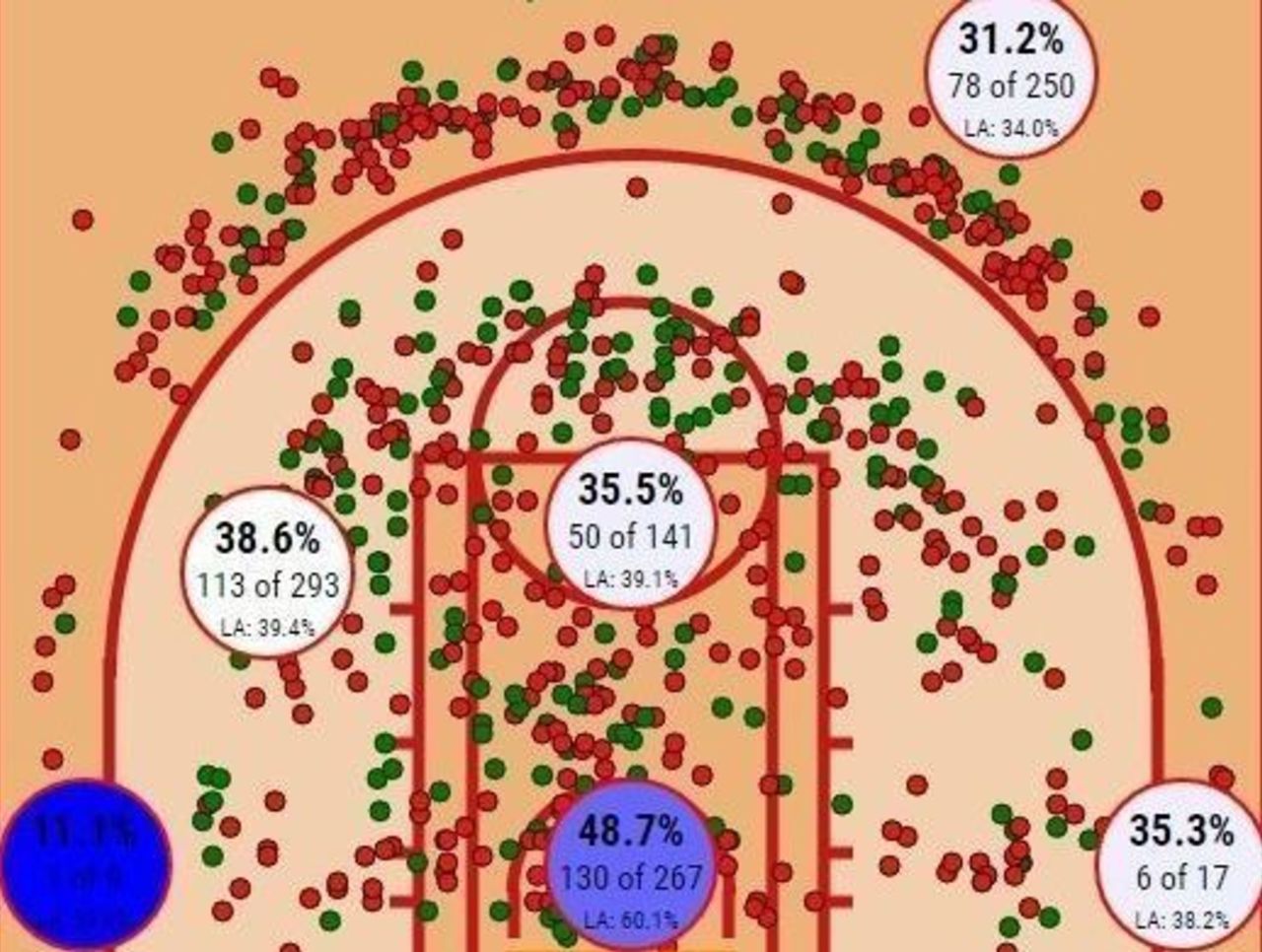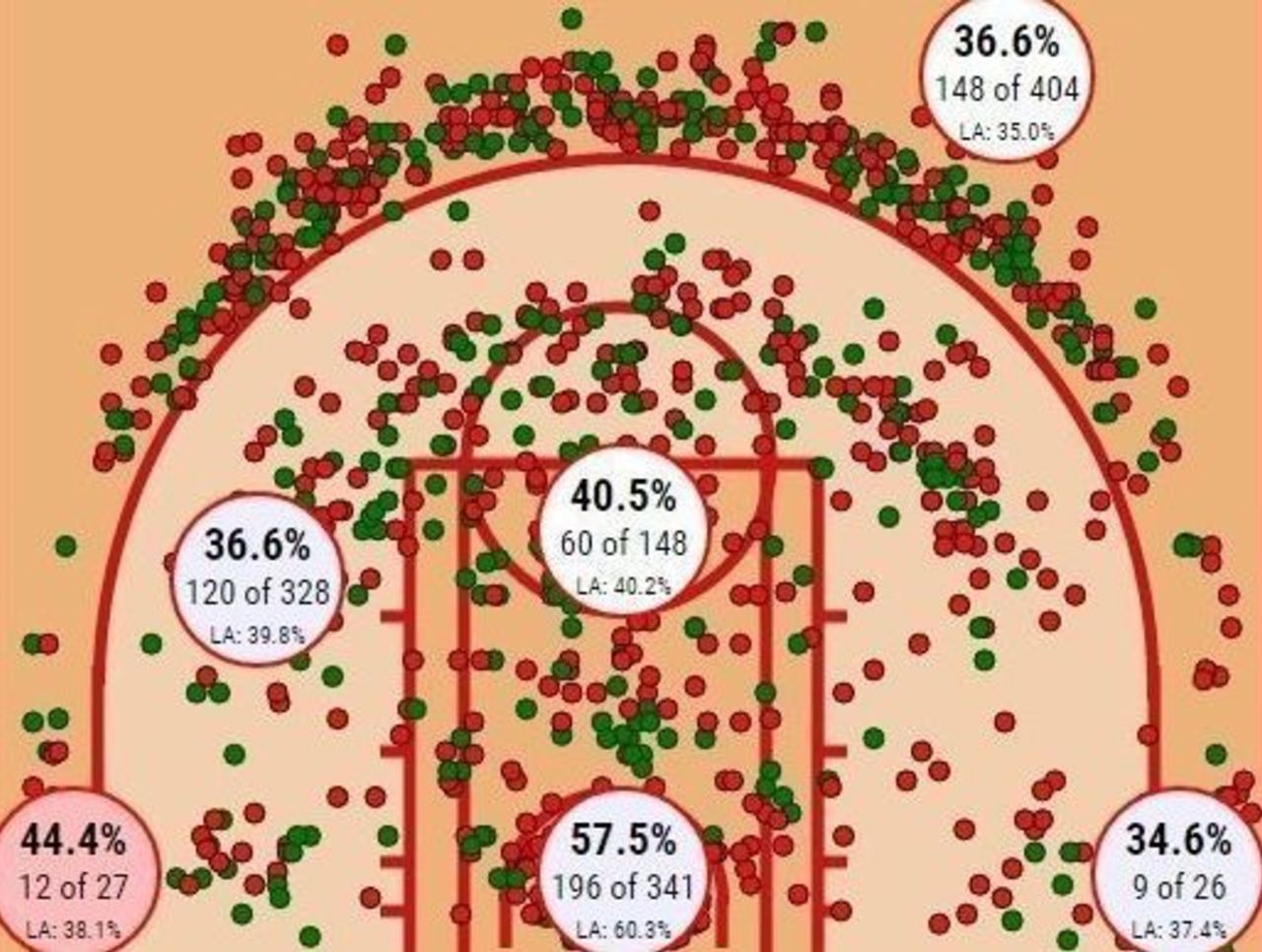Kemba Walker's offensive evolution should earn him Most Improved Player
Nobody ever seems to know quite what to do with Most Improved Player, an awkward award that can read as a backhanded compliment as much as a certified symbol of growth.
For Kemba Walker, it's a bit of both. The Charlotte Hornets point guard flashed plenty of attractive skills in his first four seasons, but he had a wonky jump shot, an inability to convert at the rim, and an offensive game that seemed to have stalled out.
This season he's looked like a completely different player - most critically, one who's now capable of burning defenses that give him room to shoot. He's always been among the game's best at creating space for himself, with whip-quick crossovers and wicked step-backs; now he's finally making good use of that space. As a result, he's helped lift the team's offense to heights it hasn't reached since the original Hornets franchise split for New Orleans 14 years ago.
Part of his improvement is the result of personnel moves the Hornets made to add more shooting and playmaking across the roster. But he - along with newcomer Nic Batum - has been the engine making it go, and the team's cultural shift wouldn't have taken root without Walker's great leap forward.
In an offense that was able to breathe at last, and with opposing defenders finally forced to think twice about continually ducking under screens against him, Charlotte's longest-tenured player thrived by breaking down defenses with probing dribbles, slicing and kicking, getting himself to the line, and even finishing in the restricted area.
2014-15:

2015-16:

(Courtesy: NBA Savant)
Walker posted career highs in scoring average, field-goal percentage, 3-point percentage, and free-throw rate. And he did this despite carrying a bigger workload than ever before, with career highs in usage rate, field-goal attempts, and 3-point attempt rate. He did it without sacrificing his active, energetic defense, and he did it while posting the lowest turnover rate of any qualified point guard (a big reason the Hornets as a team posted the league's best turnover rate). It was that rare, happy marriage of increased volume and efficiency.
| Seasons | FG% | 3PT% | TS% | FTA/36 |
|---|---|---|---|---|
| 2011-15 | 39.5 | 31.8 | 49.5 | 4.7 |
| 2015-16 | 42.7 | 37.1 | 55.4 | 5.5 |
Walker was great all season long, but he went haywire after the All-Star break - when the Hornets were the best team in the Eastern Conference - averaging 21.5 points with a 58.1 true shooting percentage, while turning the ball over less than twice per game. In so doing, he helped lead the Hornets to their best record since returning to Charlotte (as the Bobcats) in 2004, even as they played without dynamic two-way swingman Michael Kidd-Gilchrist for virtually the entire season.
A spate of other deserving candidates will garner recognition, and could easily be swapped in for Walker without ruffling too many feathers hereabouts. C.J. McCollum stepped in to fill what looked like a massive talent vacuum in Portland, shouldering a considerable load in emerging as second banana on the season's most surprising team. Giannis Antetokounmpo morphed from a talented but erratic bundle of limbs into a fluid, crafty facilitator who averaged 7.2 assists per game after the All-Star break. (He loses points for the Bucks' disappointing season, but no in-season transformation was quite as jarring.) Steph Curry, amazingly, has a legitimate case for being the first player ever to follow up an MVP season with a Most Improved award, for his leap from simple best player in the league to dynastic, sport-altering, history-redefining force.
Any of these would make fine choices, but no player's improvement has been as singularly crucial to his team's fortunes this season as Walker's. The chief catalyst on a wildly overachieving team that had no business being as good as it was, Walker should be rewarded for taking his game to a level few believed he was capable of reaching.